Indigenous Harm Reduction
& Tent Outreach
QomQem Coastal Connections, a part of the Indigenous Outreach Workers Network (IOW), coordinates the Indigenous Harm Reduction pop up tent that is set up on the 900 block of Pandora Ave.
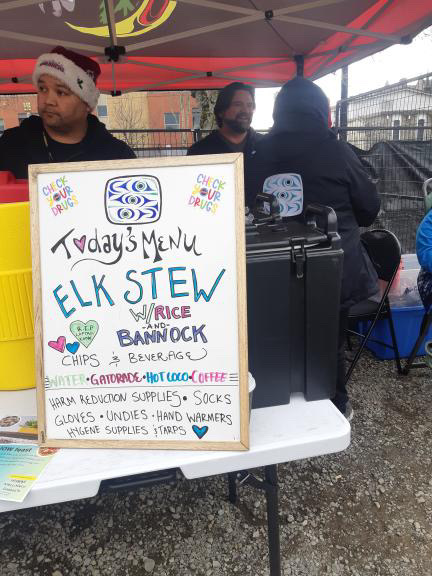
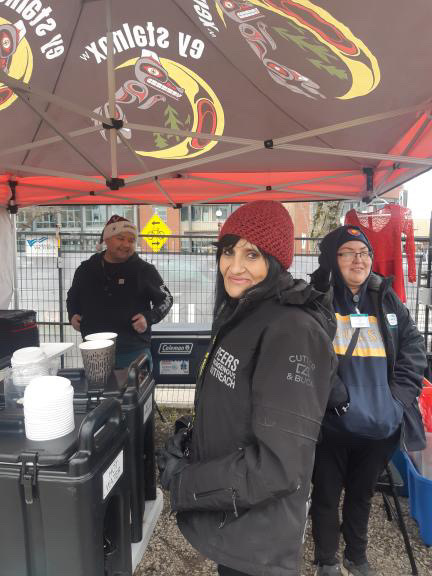
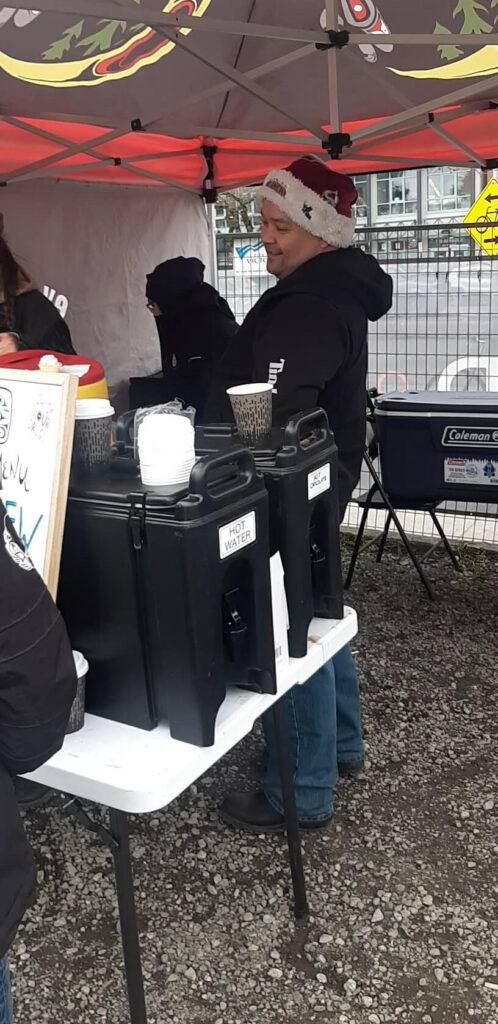
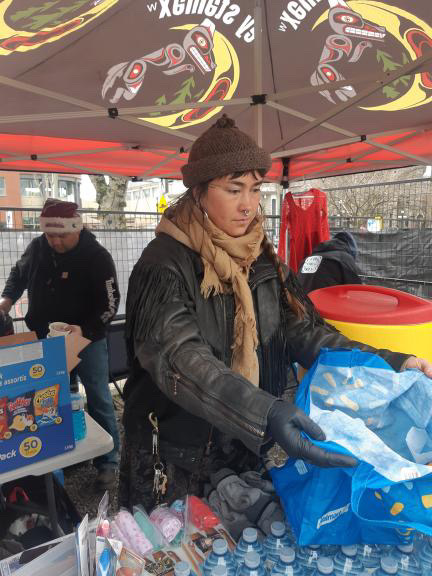
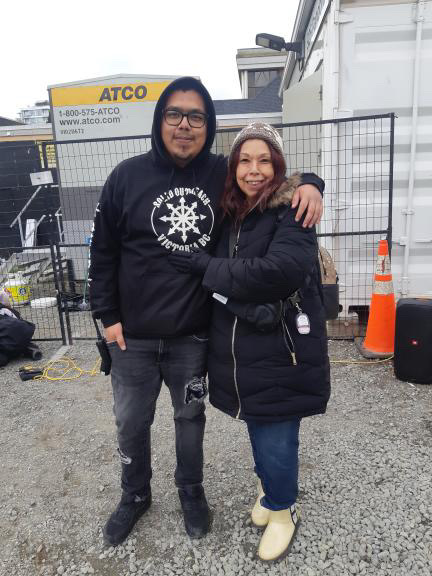
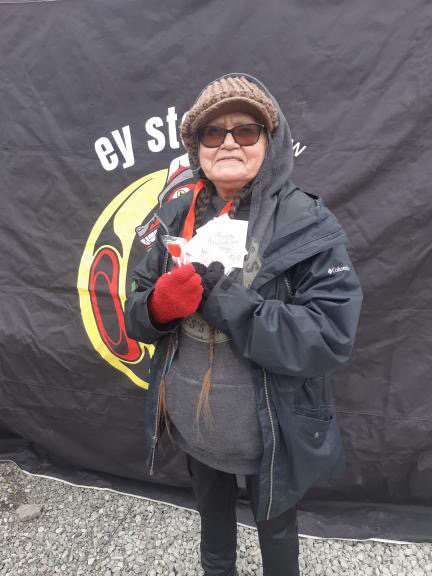
The Tent and IOW
The Tent
This space provides low barrier access for cultural reconnections – elders and drum groups are invited to come and share medicine and relationship with Street Family. The pop up tent also offers harm reduction gear, food and referrals to housing, health and other social services that may be useful for our relatives that are unhoused.
WHAT IS INDIGENOUS HARM REDUCTION
3 MAJOR PRINCIPLES
Sovereignty & agency
- Meet clients where they are at.
- Witness the resilience and strength continually shown
- Practice non-interference
- harm reduction model versus reformation has higher success rates and less fatalities.
- Indigenous ancestral rights = sovereignty.
- Our cultural practices tie us to our territories, waters, nations and culture.
Cultural Safety
A concept coined by Māori nurses, it refers to centering a person’s unique cultural identity, engaging in collaboration, and letting individuals decide if the supports are working for them. Then, we listen and change approaches as needed.
- Comprehensive care that aligns with cultural needs.
- Incorporate Indigenous beliefs, values, and practices: medicinal plants, ceremony, Elder consultation etc.
- Collaborating with Elders and cultural people to guide and participate in the initiatives.
- Reconnecting back to culture and ancestors = strength and healing.
- The colonial project has worked hard to break us but we continue to work hard to uphold our relationship to our culture.
Reclamation & Reconnection
Colonialism uprooted and distorted many structures and ways of life within our communities, reclaiming cultural practices and providing cultural supports & reconnection can strengthen us. For many folks its their first opportunity to experience their culture and the personal importance cannot be understated
- Mainstream harm reduction models do not always adequately meet the needs of those in northern, rural or remote communities.
- Indigenous peoples have many Nation-specific understandings and traditions that mainstream services often ignore or interrupt inaccurately.
- At QomQem we are always trying to adapt to our contemporary context while still drawing on the importance of traditional practices.
- First and foremost, the community you are providing supports for should ALWAYS be consulted on the effectiveness of your programs & practices.

MORE
Indigenous people globally have been practicing harm reduction since before colonizers. There is so much to be said about the complex models, unique ways, and strengths and resilience daily enacted within Indigenous people’s communities. Often media and socially accepted, racialized ideas paint inaccuracies of what this resilience has to look like. Part of Indigenous harm reduction is supporting and witnessing our people’s ways of staying human despite colonizer’s inhumane acts.
A great recourse around indigenous harm reduction can be found on the IHRT web page.
